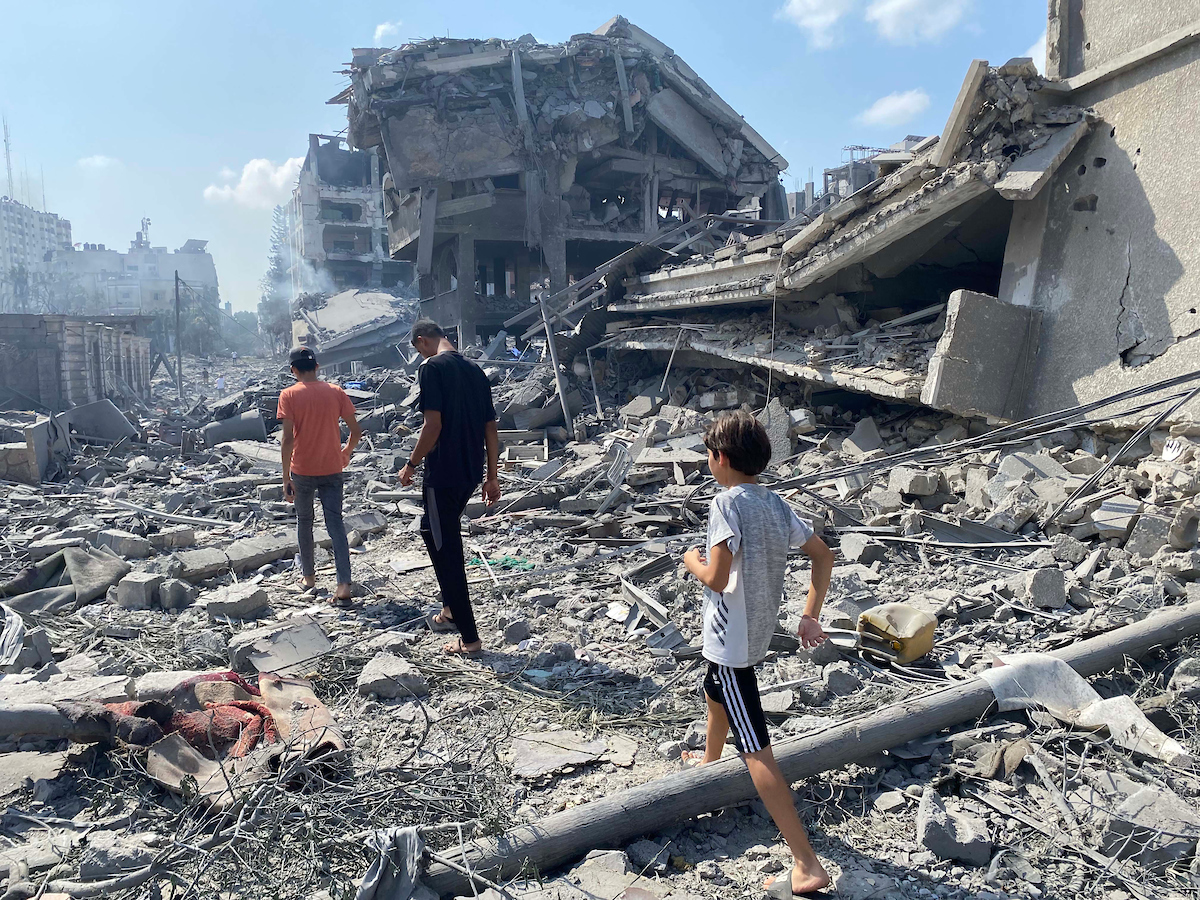News
70% of population in Gaza consists of young people: UN

FILE: Palestinians inspect the damage following an Israeli airstrike on the El-Remal aera in Gaza City on October 9, 2023. Israel continued to battle Hamas fighters on October 10 and massed tens of thousands of troops and heavy armour around the Gaza Strip after vowing a massive blow over the Palestinian militants’ surprise attack. (Photo by Naaman Omar apaimages/Wikimedia Commons, CC BY-SA 3.0)
HAMILTON, Canada – The United Nations (UN) on Wednesday reported that 70 percent of the population in the Gaza Strip consists of young people under the age of 30.
It said nearly all of them are grappling with unprecedented levels of trauma, violence, disease, and food insecurity.
“All schools across the Gaza Strip are closed, impacting more than 625,000 students,” Rosemary DiCarlo, UN Undersecretary-General for Political and Peacebuilding Affairs, told a UN Security Council meeting on “the role of young persons in addressing security challenges in the Mediterranean.”
Emphasizing the significance of meaningful inclusion of youth in decision-making processes, she said, “In the southern and eastern Mediterranean, young people constitute 55 percent of the population. We recall the wave of demonstrations that swept across the region in 2011.
”
Noting that young people constitute the majority of those undertaking the perilous journey across the Mediterranean, DiCarlo said, “It is estimated that one out of four young people around the world is affected by violence or armed conflict. The young, especially women, are more vulnerable to neglect, abuse, and exploitation.”
“Young people are more likely to be recruited by armed groups when they have no other livelihood opportunities. Additionally, estimates also suggest that more than 90 percent of all direct conflict deaths occur among young adult males,” she said.
Saying that “grim facts and figures are borne out in the unfolding calamity in one part of the Mediterranean,” DiCarlo reminded the Council of the numerous casualties in Gaza following the Oct. 7 Hamas attack.
Nasser Kamel, head of the Union for the Mediterranean, emphasized the unique significance of the Mediterranean Sea on a global scale, despite covering less than 1 percent of the world’s oceans.
He highlighted its role in a fourth of all international seaborne trade and its rich biodiversity, generating an economic value of USD450 billion annually.
“But at the same time, it is also a hotspot of many challenges that pose a multi-layered risk to our peace, security and stability,” he added.
Citing water scarcity and recent flash floods, Kamel noted the need for action and urged: “It is time… to draw attention to the Mediterranean not only as a hotspot of global challenges but also as a laboratory of solutions.”
He urged greater inclusion of young people in decision-making processes, noting their role in experiencing climate change effects and driving climate action worldwide.
“We hope that the global community is ready to walk this talk with us to make the Mediterranean a true hub for best practices and solutions,” he added.





















